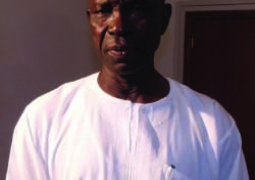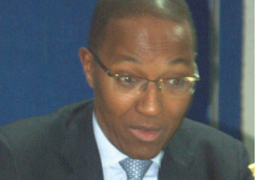A
reflection on the political transition in The Gambia in 2016 is important
because it has a direct bearing on the administration and governance of the
country.
In
2016, seven political parties came together to form a coalition whichsaw them
file an independent flag bearer to contest against former President YahyaJammeh
in the elections. The coalition set up a transitional agenda with certain
conditions to be fulfilled within a 3 year mandate. This includes, flag bearer
to resign from his party, flag bearer to resign as President after three years
and to conduct fresh elections in which he will not contest, to carry out
institutional reforms and transitional justice programs, etc. among others. It
was envisaged that these measures will build a sound foundation for democratic
governance, economic reconstruction and social rehabilitation for the
prosperity of the nation and the people.
With
the refusal of the executive to honour the transition agreement of 2016, the
country is now experiencing dwindling public confidence in the executive hence
the current political crisis regarding the coalition promise. The political
discord now is between those 3 year Jotna movement and those 5 year mandate for
Barro movement. Resolving the problem between constitutionalism and moralism is
critical to the governance architecture in this period of political transition.
The political atmosphere has been convoluted. The government is acting on
emotions on the 3 year Jotna issue and the people are acting on emotions on the
3 year Jotna issue. There is no rationalisation and action plan to deal with
the issue which poses threat to national security and the peace of the country.
We
are now in some melodramatic stage of our political development. The trend is
rather unsettling. The political scenario is driven by the competition for
leadership only and not a visionary and ideological driven conviction of most
politicians. In New Gambia people have not yet learned any lessons from the
past. This is a sad situation for the transition we all yearn for in New
Gambia.
The
current debates and protest matches are threatening the peace and stability of
The Gambia. The leaders of the coalition are mostly quiet in finding a
resolution to the problems created by their own agreement. There is political
anger in all corners of the country. One would have expected that the
international community and particularly the UN, AU, ECOWAS, EU, etc. who
played important roles in The Gambia’s transition from dictatorship to democracy
and in the peaceful transfer of power, will consider it prudent to talk to the
government and opposing factions in the current emerging political crisis to
avert the country going into regrettable chaos.
Postponing
the demonstrations on January 19 and going ahead with it later is not a
rational solution to the issue in my view. The 3 year coalition mandate for the
President would have expired and Barrow will be on his way to a 5 year mandate.
It has to be accepted that there is no more coalition and to expect the
President to step down is like waiting for a marine vessel at the airport. It
has to be accepted that the coalition was built on a wrong platform. The
constitution does not call for a transition government of 3 years. Even if the
President were to step down there will be no fresh elections. The 3 year
advocacy makes sense only in holding the President to his moral conscience. It
is therefore about time that Gambians focus on the bigger political scenario
with 14 political parties ready to battle for the Presidency in 2021. We might
be heading for another coalition.
In
the interest of peace and in the best interest of the nation, the President, in
my view, should be advised to allow space for himself to address the nation on
the 3 year/ 5 year tussles between Gambians. A government committed to the rule
of law, democracy and good governance should not shy away from addressing
issues that present potential danger to the peace and stability of the country.
It
is clear to all Gambians that coalition promises could not be met in three
years. In view of the on-going transitional justice programs, the pending
needed reforms in the security and the civil service, the on-going
infrastructural works in the country, the implementation of the National
Development Plan and so forth can only be accomplished in a longer period,
hence the need to continue the constitutional mandate to finish the agenda for
socioeconomic development.
All
that is needed is to urge all Gambians to exercise patience, maintain the peace
and adhere to the rule of law which are central to the strengthening of the new
democratic dispensation in new Gambia. The political space will be opened next
year in 2021 and Gambians will have the opportunity to elect the President of
their choice. This is an executive responsibility to resolve the looming
political crisis. It is our collective responsibility as Gambians to resolve
our political differences.



